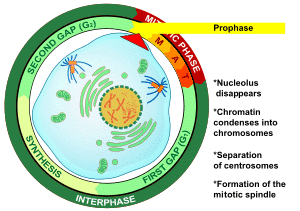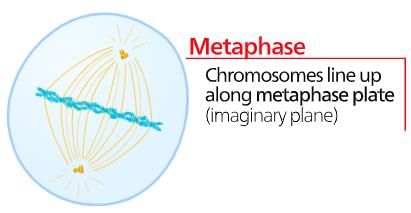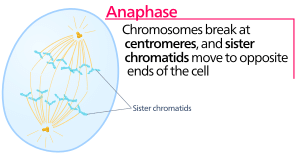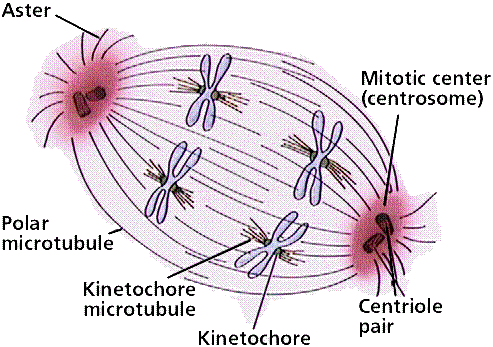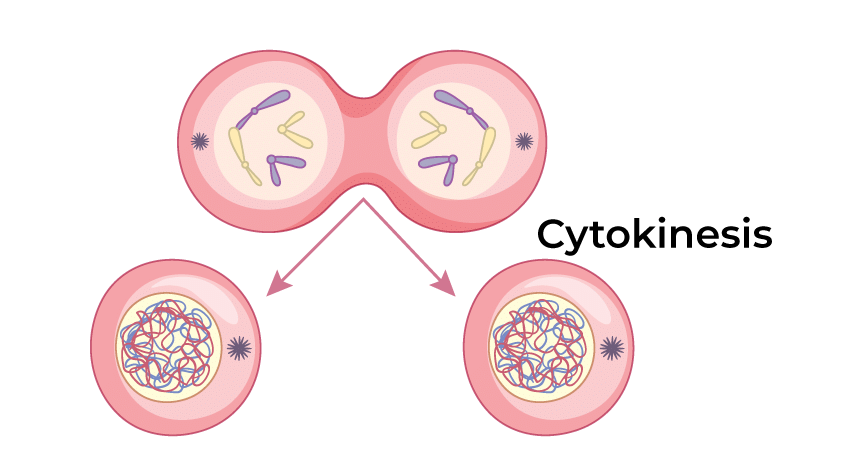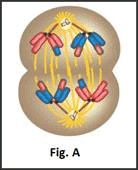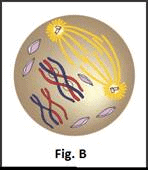NEET Exam > NEET Tests > Test: Mitosis - NEET MCQ
Test: Mitosis - NEET MCQ
Test Description
10 Questions MCQ Test - Test: Mitosis
Test: Mitosis for NEET 2025 is part of NEET preparation. The Test: Mitosis questions and answers have been prepared
according to the NEET exam syllabus.The Test: Mitosis MCQs are made for NEET 2025 Exam.
Find important definitions, questions, notes, meanings, examples, exercises, MCQs and online tests for Test: Mitosis below.
Solutions of Test: Mitosis questions in English are available as part of our course for NEET & Test: Mitosis solutions in
Hindi for NEET course.
Download more important topics, notes, lectures and mock test series for NEET Exam by signing up for free. Attempt Test: Mitosis | 10 questions in 10 minutes | Mock test for NEET preparation | Free important questions MCQ to study for NEET Exam | Download free PDF with solutions
Test: Mitosis - Question 1
In which stage of mitotic cell division, chromosomes loose their identity?
Detailed Solution for Test: Mitosis - Question 1
Detailed Solution for Test: Mitosis - Question 2
Test: Mitosis - Question 3
In a cell cycle, during which phase chromosomes are arranged on the equatorial plate?
Detailed Solution for Test: Mitosis - Question 3
Test: Mitosis - Question 4
How many mitotic divisions are needed for a single cell to make 128 cells?
Detailed Solution for Test: Mitosis - Question 4
Detailed Solution for Test: Mitosis - Question 5
Test: Mitosis - Question 6
Assertion (A): Cytokinesis is the process that divides the cell's cytoplasm into two daughter cells.
Reason (R): In plant cells, cytokinesis is achieved through the formation of a cell plate.
Detailed Solution for Test: Mitosis - Question 6
Detailed Solution for Test: Mitosis - Question 7
Detailed Solution for Test: Mitosis - Question 8
Test: Mitosis - Question 9
In mitosis, the number of chromosome sets in daughter cells will be:
Detailed Solution for Test: Mitosis - Question 9
Detailed Solution for Test: Mitosis - Question 10
Information about Test: Mitosis Page
In this test you can find the Exam questions for Test: Mitosis solved & explained in the simplest way possible.
Besides giving Questions and answers for Test: Mitosis, EduRev gives you an ample number of Online tests for practice
Download as PDF


